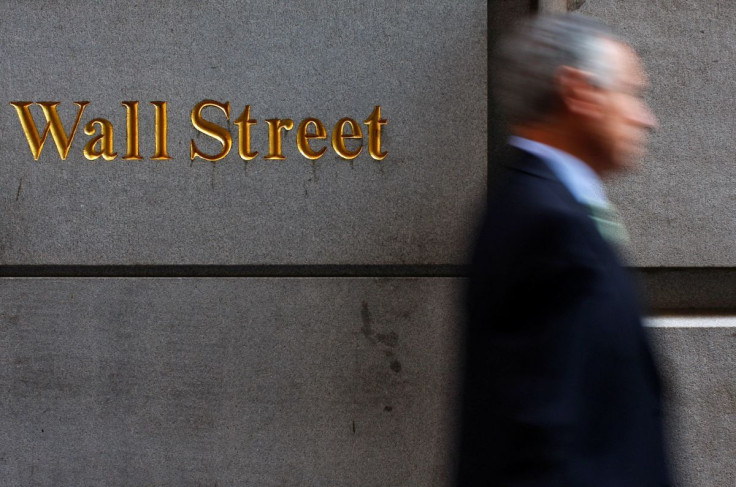Wall Street Loses Ground After Hot Inflation Data

U.S. stocks fell on Thursday, with Big Tech leading the declines after stronger-than-expected consumer prices data raised fears the Federal Reserve will act aggressively to counter inflation.
The Labor Department data showed consumer prices leapt 7.5% in January on a year-over-year basis, topping economists' estimates of 7.3%, leading to the biggest annual increase in inflation in 40 years.
Traders are now betting the Fed will begin raising rates at its March meeting, with money markets pointing to 50% odds of a half point increase next month, from 30% before the release of the data. [MMT/]
"CPI came in a bit on the high side, and it doesn't suggest inflation is peaking anytime soon. It might mean the Fed could get more aggressive," said Peter Cardillo, chief market economist at Spartan Capital Securities.
Eight of the 11 major S&P 500 sectors declined in early trading, with technology stocks falling 1%.
Megacap growth stocks such as Apple Inc, Google-owner Alphabet Inc, Microsoft Corp and Amazon.com Inc, that tend to get hurt from higher rates, fell between 0.7% and 1.2%.
However, shares in lenders Wells Fargo & Co, Bank of America Corp and Citigroup Inc gained between 0.6% and 1%, as the yield on the benchmark 10-year U.S. Treasury note topped 2% for the first time in 2-1/2 years. [US/]
"Markets are going to continue to transition from growth to value and that rotation is going to be in play in earnest for a while," said Jamie Cox, managing partner at Harris Financial Group in Richmond, Virginia.
By 09:55 a.m. ET, the Dow Jones Industrial Average was down 107.85 points, or 0.30%, at 35,660.21, and the S&P 500 was down 24.32 points, or 0.53%, at 4,562.86.
The Nasdaq Composite was down 101.20 points, or 0.70%, at 14,389.17.
All three indexes, however, cut some of the sharp opening losses as the session got underway.
U.S. stocks rallied in the past two sessions as rate-sensitive growth stocks rebounded after a rough start to the year, helping the Nasdaq recoup some of this year's losses.
Walt Disney Co jumped 5.4% after beating revenue and profit estimates, while Mattel Inc surged 9.7% after forecasting full-year profit above estimates.
Uber Technologies Inc climbed 4.9% after reporting a quarterly operating profit as demand for ride-hailing services approached pre-pandemic levels and its food delivery business turned profitable.
Of the 316 S&P 500 companies that have reported results this earnings season, 77.8% of them have beaten analysts' profit estimates, according to Refinitiv data.
Declining issues outnumbered advancers for a 1.80-to-1 ratio on the NYSE and a 1.66-to-1 ratio on the Nasdaq.
The S&P index recorded 17 new 52-week highs and one new low, while the Nasdaq recorded 30 new highs and 38 new lows.
© Copyright Thomson Reuters 2024. All rights reserved.




















